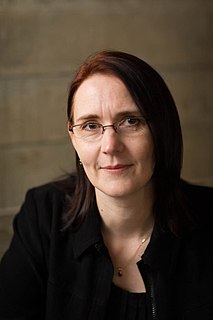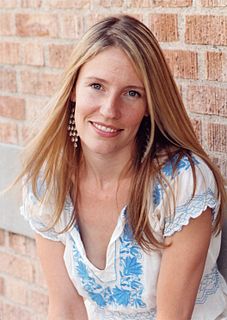A Quote by Suw Charman-Anderson
For example, because I'm a lapsed geologist, I followed the eruption of Icelandic volcano Eyjafjallajökull in 2010 in great detail, amassing a huge number of links to news articles, blog posts, scientific papers, web cams, video and photos. That archive came to the attention of Chatham House, and they then commissioned me to research the way in which the media responded to the ash cloud crisis. I think that's the only time that my degree and my career have fully intersected, and it really was a lovely moment!
Quote Topics
Articles
Attention
Because
Blog
Came
Career
Cloud
Commissioned
Crisis
Degree
Detail
Eruption
Example
Followed
For Example
Fully
Geologist
Great
House
Huge
Links
Lovely
Me
Media
Moment
News
Number
Only
Only Time
Papers
Photos
Posts
Really
Research
Scientific
Then
Think
Time
Video
Volcano
Way
Web
Which
Related Quotes
I do not think I responded immediately, for it took me a moment or two to fully digest these words of Miss Kenton. Moreover, as you might appreciate, their implications were such as to provoke a certain degree of sorrow within me. Indeed- why should I not admit it? - at that moment, my heart was breaking.
Aggregating is only a part of what we do: HuffPost offers a combination of original blog posts (approximately 200 a day), original reporting, syndicated news (like from AP) that we pay for, and licensed content (via content-sharing partnerships). Original blog posts and pieces from our reporters account for more than 40 percent of all content viewed on HuffPost.
We're just a big media family. My mom is always sending us articles throughout the day. My husband now works at Facebook... so it's just a very high-paced media culture, our texts. It's links and photos, and all hours of the day, because my dad, my brother, and I are night owls, and my mom and my husband wake up early.
Instagram is a media company. I think we're about visual media. I explain ourselves as a disruptive entertainment platform that enables communication through visual media. I don't think it's just photos. There's a reason we don't allow you to upload photos on the Web as albums. It's not about taking all these photos off your DSLR putting them into an album and sharing them with your family. It's not about that. It's about what are you up to right now out in the real world, how can you share that with everyone.
Where the differences came in was the patina of ideology which the news media laid over everything. There's certainly a bias, to some degree, in the way the media portrays the military. I'm not saying that's entirely wrong - the Fourth Estate is there to hold generals and colonels accountable for their actions and decisions - but having reporters on the scene, reporting in real time certainly complicates things for the military mission.
































